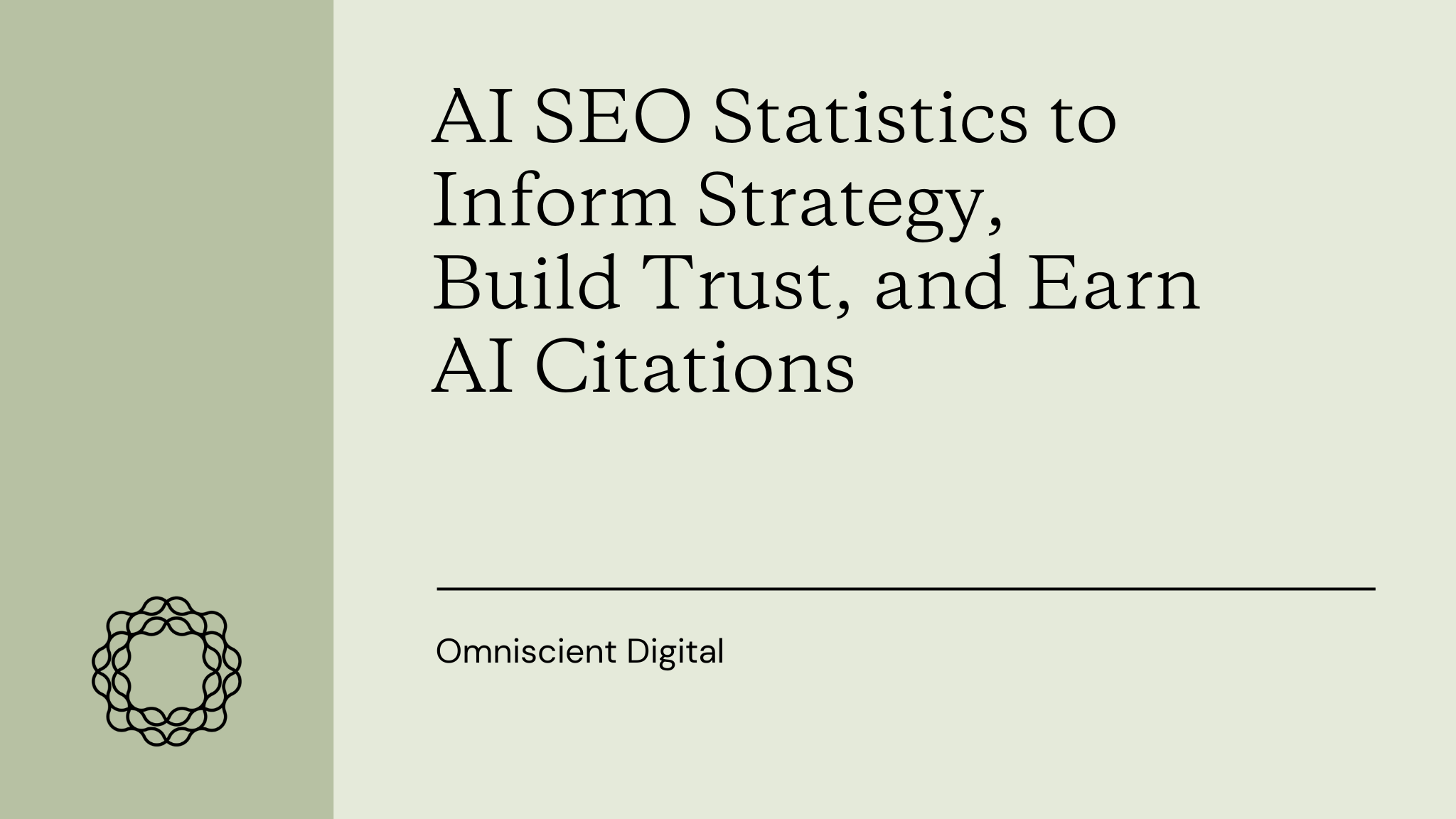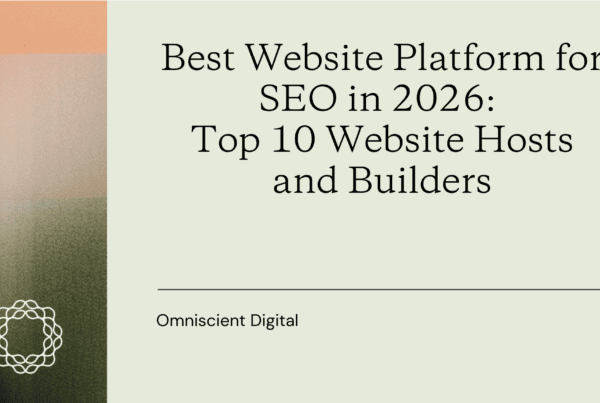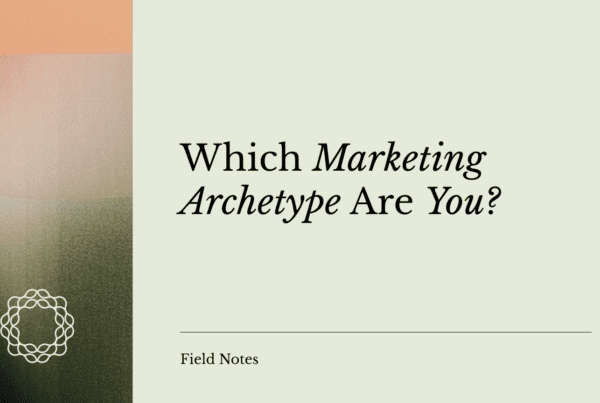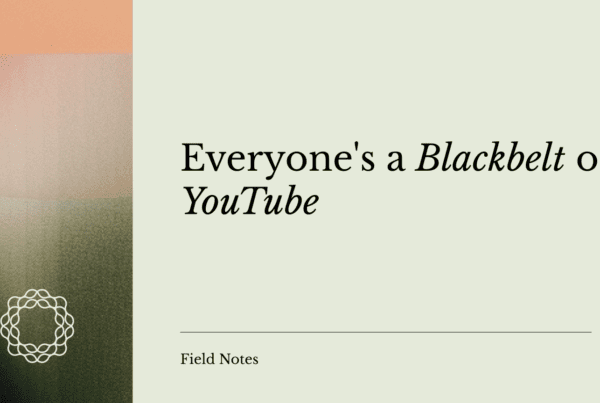
Today’s buyers are changing their search behavior. Instead of relying only on traditional search engines, more users are turning to AI to answer their questions. Sometimes that shift is intentional, starting a journey directly in an LLM. Other times it’s passive, beginning in Google and being shown an AI Overview instead of the classic list of links.
In the past, marketing strategies centered on winning the SERP: building thought leadership and publishing content to fight for top search engine rankings.
Now, winning brands need to show up everywhere buyers are searching. That means creating content for both AI SEO and classic search engine optimization. The future of visibility depends on diversifying presence across AI platforms and search engines, so your brand is recognized throughout the customer journey.
Here’s what the latest AI SEO statistics reveal about adoption, accuracy, and the future of organic search.
Adoption and Market Trends
AI adoption is changing how people discover information online:
- By 2027, 90 million Americans will have used AI for search.
- Within five years, 66% of consumers expect AI to replace traditional search engines fully.
- ChatGPT holds 80.1% of the AI search engine market share.
- Google’s search engine market share has dropped to 89.34% — its first dip below 90% since 2015.
- In March 2025, Google’s AI Overviews showed up in 13.14% of all U.S. desktop searches, nearly doubling from 6.49% in January.
The big picture: ChatGPT is the clear leader in AI search. Google is holding ground with AI Overviews, but traditional search dominance is beginning to slip.
How AI Impacts Organic Search
AI is rewriting what organic search results look like:
- Around 60% of internet users now end searches without a click, as AI-generated search results satisfy the query directly.
- Users click just once for every 20 AI search prompts.
- AI Overviews only match the exact Google search queries 5.4% of the time, showing that intent matters more than keywords.
- 37.5% of ChatGPT use cases are generative tasks (“create”, “draft”, “do”), while 32.7% are informational — compared to 52.7% informational searches in traditional search.
- AI search users are 4.4 times more valuable than organic traffic users.
AI queries deliver fewer clicks but higher-quality ones. The shift from specific keywords to general search intent means SEO strategies must move beyond ranking-focused goals to conversion-focused visibility.
Trust, Quality, and Accuracy
Adoption is rising, but confidence in generative AI remains divided:
- 28% of Americans lack trust in AI-powered search results.
- 66% of people rely on AI output without checking its accuracy.
- While 65.9% believe AI tool citations boost trust, only 27% click the cited links.
- More than 60% of responses across eight AI tools cite incorrect answers.
- Error rates are still high: Perplexity performed best at 37% wrong, while Grok 3 failed on 94% of queries.
Users are split. Some don’t trust AI answers, while others accept them uncritically. Marketers and SEO professionals must balance reach with accuracy — optimizing for AI tools while ensuring content maintains trust and authority.
The AI Citation Gap
Citations in are inconsistent, and that directly impacts SEO performance:
- In 92% of answers, Gemini provides no citation to click on, while 24% of ChatGPT-4o responses frequently omit credits.
- 86% of the top-cited sources are unique to their platform, showing little overlap between ChatGPT, Perplexity, and AI Overviews.
- ChatGPT and Perplexity share 11% of citations, AI Overviews and Copilot share 6%, and AI Overviews and Perplexity overlap at 16.4%.
- Across multiple answer engines, about 40%-60% (~54% for ChatGPT) of domains change monthly; over six months, that rises to 70–90%.
- According to Profound’s internal data, the average number of domains cited per prompt varies across the major AI search engines:
| OpenAI’s ChatGPT | 6.37 |
| Perplexity AI | 7.96 |
| Google’s AI Mode | 9.37 |
| Google’s AI Overviews | 8.2 |
| Google Gemini | 7.25 |
| Microsoft Copilot | 2.92 |
| Meta AI | 2.65 |
There’s no single “top organic search result” in AI-driven search. LLMs value domains differently — and they change constantly due to the probabilistic nature of answer engines and the freshness required to show up. A multi-platform approach with continuous monitoring is the best way to protect online visibility.
Share of Voice in AI
Mentions inside LLMs are becoming the new measure of authority:
- Reddit is the top-cited source, holding 3.5% share of voice. The platform specifically dominates in Google AI Overviews (21%) and Perplexity (46.7%).
- Wikipedia has a 1.78% share of overall citations, accounting for nearly half of ChatGPT citations (47.9%).
- YouTube comes in third with 1.63% of overall AI-driven search citations. It ranks second for AI Overviews (18.8%) and Perplexity (13.9%).
- 80.41% of ChatGPT citations come from .com domains, 11.29% from .org, and ~1% from .io/.ai.
- Profound reports that early adopters using their service saw a 25–40% lift in share-of-voice within their first 60 days.
Big brands dominate today, but smaller companies can earn meaningful visibility by publishing where AI tools pull their data.
How Content Ranks
Rankings still matter, but now they fuel both traditional search engine optimization and AI SEO:
- Ranking #1 on SERP results gives you a 33.07% chance of being cited in AI Overviews, vs. just a 13.04% chance for ranking #10.
- Many enterprise brands saw a 2–5× increase in citations using Profound to optimize strategic content for generative AI.
- Brand visibility scores (the percentage of AI responses your company appears in) above 70% signal strong AI search performance; below 30% signals major gaps.
- Strategic content modifications in AI SEO can increase visibility by up to 40%.
- 98% of brand mentions in AI answers have a neutral or positive sentiment.
Traditional SEO and AI SEO are intertwined. Top-ranking pages fuel citations, and optimizing for AI makes your content more likely to appear across multiple search results.
Conclusion
The future of SEO isn’t just about Google searches. It’s about being visible across AI platforms, search engines, and wherever buyers turn to find answers.
Brands that adapt their content creation process, optimize for AI-generated search results, and pay attention to these SEO statistics will pull ahead.
For authentic reviews from real users validating the best SEO tools, G2 has an SEO resource page. There, you can see side-by-side comparisons across features like keyword research, technical SEO, backlink analysis, and reporting.
For SEO experts and marketing professionals, the playbook is straightforward:
- Keep optimizing for traditional search engines while building organic growth.
- Publish original, authoritative content that earns citations in AI search engines.
- Track your Generative Engine Optimization (GEO) performance and measure attribution from dark channels.
Want to start measuring brand visibility in AI search, compare your brand to competitors, or learn brand sentiment in LLMs? We’ve found the best GEO tools to help you attribute customers from AI sources and optimize your content marketing strategy for AI.


